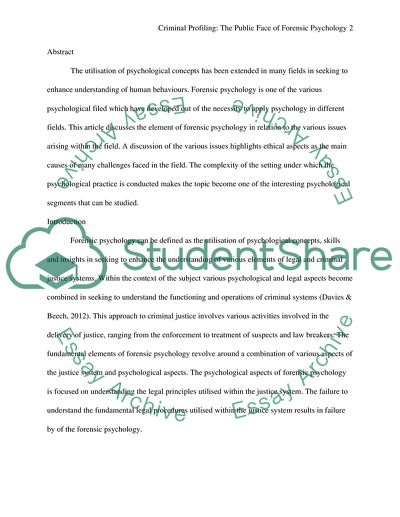Cite this document
(“Criminal Profiling: The Public Face of Forensic Psychology Term Paper”, n.d.)
Criminal Profiling: The Public Face of Forensic Psychology Term Paper. Retrieved from https://studentshare.org/psychology/1657686-criminal-profiling-the-public-face-of-forensic-psychology
Criminal Profiling: The Public Face of Forensic Psychology Term Paper. Retrieved from https://studentshare.org/psychology/1657686-criminal-profiling-the-public-face-of-forensic-psychology
(Criminal Profiling: The Public Face of Forensic Psychology Term Paper)
Criminal Profiling: The Public Face of Forensic Psychology Term Paper. https://studentshare.org/psychology/1657686-criminal-profiling-the-public-face-of-forensic-psychology.
Criminal Profiling: The Public Face of Forensic Psychology Term Paper. https://studentshare.org/psychology/1657686-criminal-profiling-the-public-face-of-forensic-psychology.
“Criminal Profiling: The Public Face of Forensic Psychology Term Paper”, n.d. https://studentshare.org/psychology/1657686-criminal-profiling-the-public-face-of-forensic-psychology.


